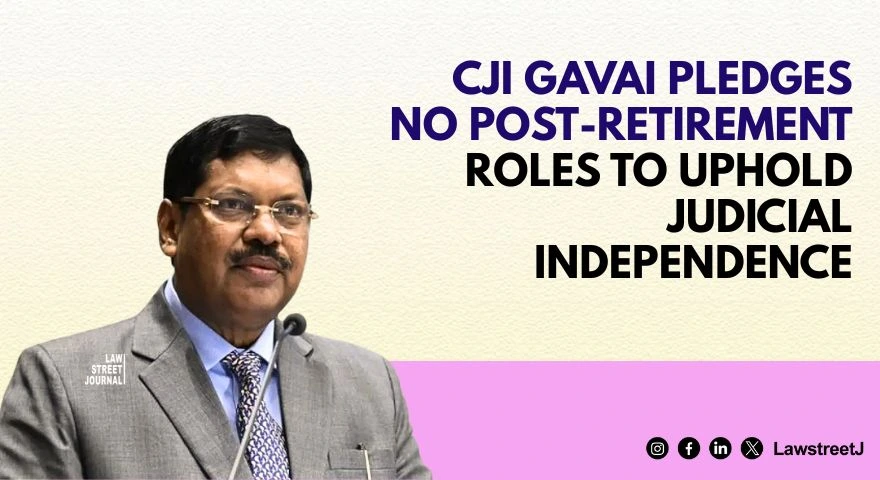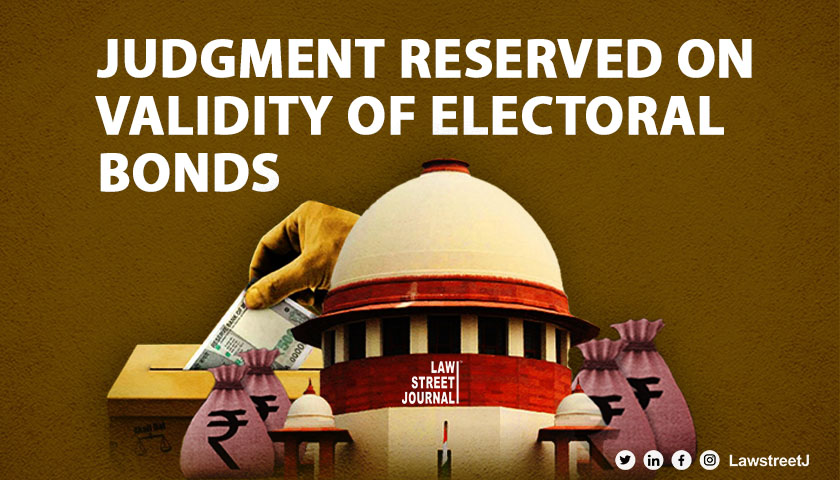NEW DELHI: Chief Justice of India B R Gavai has said many of his colleagues and he himself publicly pledged not to accept any post-retirement roles or positions from the government, in an effort to preserve the credibility and independence of the judiciary.
He said, if a judge takes up another appointment with the government immediately after retirement, or resigns from the bench to contest elections, it raises significant ethical concerns and invites public scrutiny.
"A judge contesting an election for a political office can lead to doubts regarding the independence and impartiality of the judiciary, as it may be seen as a conflict of interest or as an attempt to gain favour with the government. The timing and nature of such post-retirement engagements could undermine the public’s trust in the judiciary’s integrity, as it could create a perception that judicial decisions were influenced by the prospect of future government appointments or political involvement," he said.
The CJI stressed that every system, no matter how robust, is susceptible to issues of professional misconduct and sadly, there have been instances of corruption and misconduct within the judiciary.
"Such occurrences inevitably have a negative impact on public confidence, potentially eroding faith in the integrity of the system as a whole. However, the path to rebuilding this trust lies in the swift, decisive, and transparent action taken to address and resolve these issues. In India, when such instances have come to light, the Supreme Court has consistently taken immediate and appropriate measures to address the misconduct," he said.
Speaking in a roundtable in the UK Supreme Court on June 3, 2025 on 'Maintaining Judicial Legitimacy and Public Confidence', CJI Gavai said in every democracy, the judiciary must not only dispense justice, but also be seen as an institution that deserves to hold truth to power.
"In today’s digital era, where information flows freely and perceptions are rapidly shaped, the judiciary must rise to the challenge of being accessible, intelligible, and answerable, without compromising its independence," he said.
On steps taken to bolster public confidence through transparency, he listed out the decisions like public disclosure of assets by judges, live streaming of court proceedings, translation of court judgments in regional languages, free access to all judgments, and real time information on pendency of cases through National Judicial Data Grid.
"However, as with any powerful tool, live streaming must be wielded with care, as fake news or out-of-context court proceedings can negatively shape public perception. Only last week, one of my colleagues in a lighter vein counselled a junior counsel on the art of court craft and soft skills. Instead, his statement was taken out of context and reported in the media as, “Our ego is very fragile; if you offend it, your case will go out”," he said.
Unlike legislature or executive, whose legitimacy stems from the ballot, the judiciary earns its legitimacy by upholding constitutional values with independence, integrity, and impartiality, Justice Gavai said.
The CJI pointed out the foremost consideration is the perceived independence of judges, which hinges on their tenure conditions and appointment processes, which underscores the separation of powers within the legal system, allowing judges to function independently.
He also defended the Collegium system of appointment of judges.
"There may be criticisms of the Collegium system, but any solution must not come at the cost of judicial independence. Judges must be free from external control," the CJI said.
He said in India, a key point of contention has been the question of who holds primacy in judicial appointments.
Until 1993, it was the executive that had the final say in the appointment of judges to the Supreme Court and High Courts. During this period, the executive twice superseded the senior-most judges in appointing the Chief Justice of India, which went against established tradition, he pointed out.
In response, the Supreme Court of India, in its judgments of 1993 and 1998, interpreted the constitutional provisions concerning the appointment of judges to establish that the Chief Justice of India, along with the four senior-most judges of the Supreme Court, would form a Collegium responsible for recommending appointments to the Supreme Court, the CJI said.
"This Collegium, under the court's interpretation, would act unanimously in making its recommendations, and the opinion of this body would be final, thus ensuring the independence of the judiciary in the judicial appointment process. This system sought to reduce executive interference and maintain the judiciary’s autonomy in its appointments," he said.
The CJI further pointed out in 2015, the Supreme Court struck down the National Judicial Appointment Commission Act, 2014 on the ground that the Act diluted the independence of the judiciary by giving primacy to the executive in judicial appointments.
He also said the courts must have the power of independent judicial review, allowing judges to assess the constitutionality of laws and government actions that conflict with the provisions of the Constitution or established constitutional principles. Another crucial aspect is whether the judiciary acts as a counterbalance against the arbitrary exercise of power, he said.
The CJI also highlighted the importance of judgments to be accompanied by sound reasoning to enhance public trust, besides making courts accessible to the public.
Senior SC judge Justice Vikram Nath and former Additional Solicitor General of India and senior advocate Gaurab Banerji were also present on the occasion.








![Supreme Court upholds abrogation of Article 370, mandates elections in J&K by September 2024 [Read Judgment]](/secure/uploads/2023/12/lj_9189_Historic_verdict.jpg)
![Maratha reservation: Supreme Court will hear curative plea on Jan 24, 2024 [Read Order]](/secure/uploads/2023/12/lj_6671_Maratha_quota_row.jpg)
![Supreme Court Collegium approves new Chief Justices for five key High Courts in India [Read Recommendations]](/secure/uploads/2023/12/lj_8000_380d1135-6f3a-4988-a00a-4d5cd5901815.jpg)




